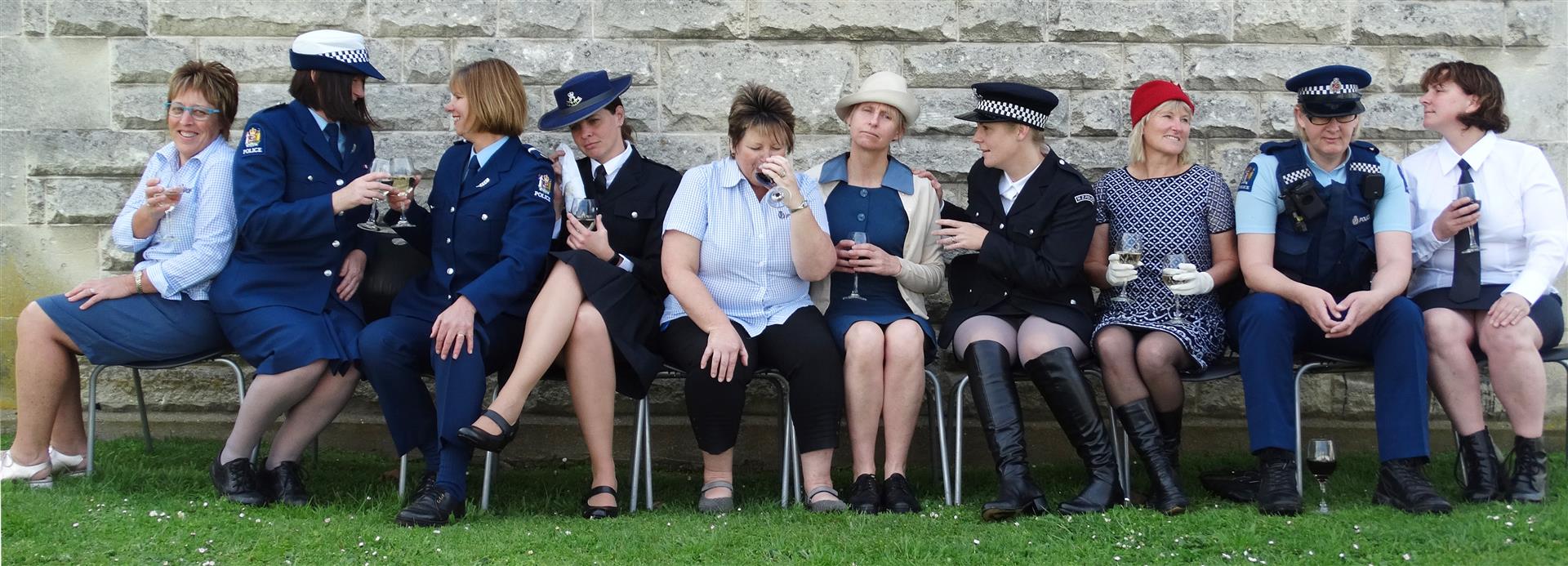Celebrations were held nationally yesterday to recognise the 125th anniversary of women's suffrage, when New Zealand women were given the right to vote - and Oamaru police got into the spirit of things, donning uniforms through the ages.
The Electoral Act was signed into law on September 19, 1893, and gave women over the age of 21 the right to vote in parliamentary elections.
Ten front-line policewomen and administrative staff from the Oamaru Police Station decided to get dressed up to recreate classic Lawson Wood illustration of carousing policemen, Nine Pints of the Law.

Southern District Police were at the forefront of those celebrating Suffrage Day around the region.
Dunedin police went into the community to visit organisations including Te Whare Pounamu Dunedin Women's Refuge and Otago Girls' High School.
Police and representatives from various community organisations and the Dunedin City Council gathered for a photoshoot outside the town hall.
About 60 police officers turned up, and while the day was led by female officers, male officers and unsworn police were also involved.

Nationally, 21% was average, and the police district with the highest number of female sworn officers in the country was Waitemata, with 25%. There was a national drive to change the number of sworn officers to 50% by 2021.
University of Otago legal issues centre historian Dr Jane Adams, who gave a talk to police on suffrage, said historically the police were slower to accept women in their ranks than many other professions.
It was not until the 1940s women were officially allowed into the police and not until the 1950s they wore uniform.
''It's the extent to which women as police officers were seen as encroaching into the male world,'' she said.
At the University of Otago, a special camellia-planting ceremony was held by the University Staff Women's Caucus in the garden outside Marama Hall.
A suffrage lecture from Professor Janine Hayward on the over-representation of men in politics was also held at the university in the evening.
In Invercargill, firefighters and police gathered at Industry Cafe to celebrate, and in Wanaka, about 25 people gathered at the town library for the occasion.
Wanaka Women's Suffrage Committee member Jenny Moss shared stories from her book Skirt Tales, published in 1993 to mark the 100th anniversary of women's suffrage, and a camellia was planted.
Balclutha police put on a community morning tea for the town's citizens, at the town's living wall.
Exhibitions on suffrage are running at both the Dunedin City Library's Reed Gallery and Toitu: Otago Settler's Museum.











